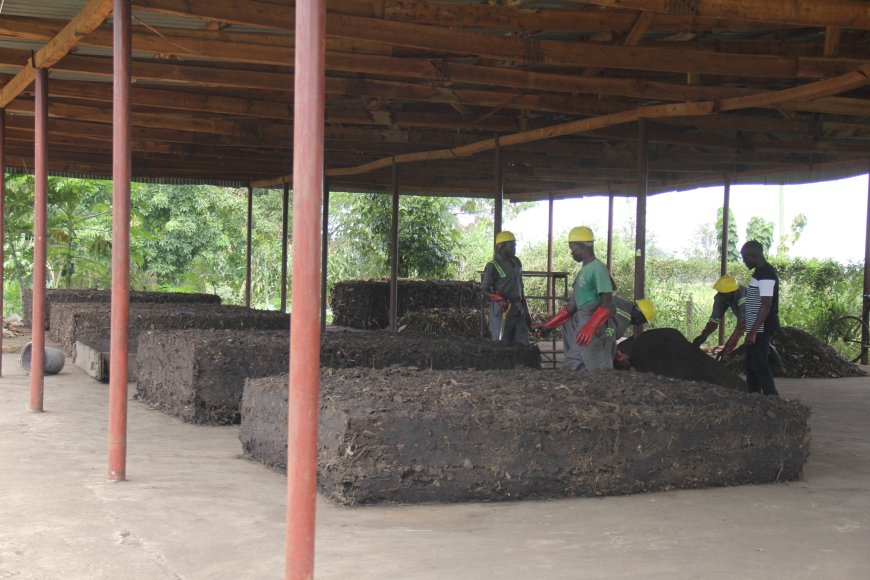Smart farming is key to building a resilience food system

Busia,
Wednesday, September 20, 2023,
KNA by Victoria Magar/Absalom Namwalo
As Busia County focuses on building resilient food systems, farmers have been urged to embrace climate-smart agriculture practices, the use of organic fertilizers, and robust research efforts that provide vital components towards food security.
In order to ensure food security and sustainability, Finish-Ink organization in partnership with the county government of Busia has set up a biodegradable plant that synthesizes solid waste into vital organic fertilizer that has been a secret towards good yields.
Speaking to KNA the county project coordinator in Busia county under the fecal sludge treatment programme Moses Mawese, said that the biodegradable system is emerging as a game changer for the agricultural and hygiene sector for healthy plant and healthy living.
“This eco-friendly alternative is not only reducing landfill burden but also revolutionizing farming practices, offering a glimpse of hope for a greener future,” noted Mawese.
The organization (Finish-Ink) seeks to address the waste recovery gap and poor disposal of untreated human and other wastes that have been a threat to human life and the ecosystem for decades.
“This project applies the sanitation circular economy approach as a guide to its implementation. It envisions healthier and socio-economically empowered communities as a result of people using safely managed sanitation facilities, practicing hygienic behavior, and using safely treated human and other organic waste manure for farming. The end product in the sanitation value chain is co compost which is generated at the Busia Fecal Sludge Treatment Plant (FSTP),” he added.
The organization is championing the use of organic modified fertilizer which has many benefits to the crop and farm as compared to synthetic fertilizer over a long period of time.
"Organic manure improves crop yield through its nutrients, it also improves soil fertility and structure both physically and chemically, it further improves the capacity of soil to retain moisture," said Mawese.
The process entails receiving waste products from the market before sorting and segregation to remove non-degradable materials, shredding is done then incorporated in a ratio of 4 to 1 then it is taken through decomposition which takes 2 to 3 months to become well decomposed and later taken for a laboratory test.
"We use the windrow format technique of decomposition in our project which is anaerobic that relies on oxygen and we put it in a unique way using different dimensions of 4 to 3 by 1.5 meters high which enables us to produce a lot of organic manure that will help many farmers," he said.
According to Busia CEC Agriculture Dr. Siplicious Mukok, the World Food Programme is advocating for the transformation of the Agri-food system particularly in the countries and regions grappling with food insecurity and malnutrition.
“In order for us to attain food security as a county we must embrace climate-smart agricultural practices, advocate for quality fertilizers, and do robust research which are pivot elements in farming,” said Dr. Mukoko.
Busia County has prioritized the employment of 10 Agriculture extension officers who will champion Governor Otuoma agenda of sustainable food security and revival of the cotton sector through informative farming and research.
The county government of Busia remains committed to bolstering the Agriculture sector which will provide raw materials for the new proposed Nasewa EPZ aggregation plant, Mulwanda ginnery, Busia sugar factory, and Simba Chai cassava factory.
However, the organization is facing challenges ranging from funding, the unwillingness of farmers to embrace the idea, and transport challenges especially the collection of waste.
Courtesy; KNA
What's Your Reaction?
































































































































































































































































































